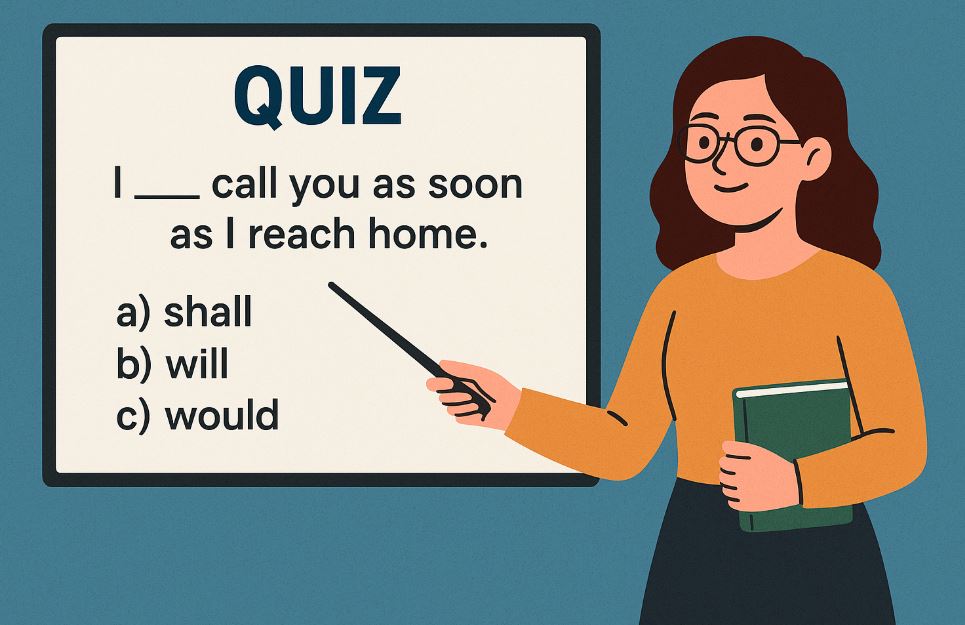Do you find yourself confused about when to use “shall” and “will” in English sentences? You’re not alone! Both words are used to express the future tense, but their meanings and usage differ slightly. Traditionally, “shall” is used with I and we to express formality, promises, or polite offers, while “will” is more commonly used in everyday English to express decisions, plans, and predictions.
This Shall or Will Quiz is designed to test your understanding and help you master the correct use of these two important modal verbs. Let’s get started!
Shall or Will Quiz Test
Practice also more related quizzes: Is or Does Quiz
Shall or Will Quiz (Multiple Choice Questions)
1. I ____ call you as soon as I reach home.
a) shall
b) will
c) would
2. ____ we go out for dinner tonight?
a) Shall
b) Should
c) Will
3. He says he ____ finish the report by tomorrow.
a) shall
b) will
c) might
4. We ____ be happy to help you with your luggage.
a) shall
b) will
c) can
5. You ____ see a message on your screen when the download is complete.
a) shall
b) will
c) may
6. I promise I ____ never forget your kindness.
a) shall
b) should
c) will
7. If you study hard, you ____ definitely pass the exam.
a) shall
b) will
c) might
8. ____ I open the window for some fresh air?
a) Shall
b) Will
c) Could
9. We ____ not tolerate any form of discrimination.
a) should
b) will
c) shall
10. She ____ arrive at the airport in an hour.
a) shall
b) will
c) must
All Quiz Answers
- a) will
- c) shall
- b) will
- a) shall
- b) will
- c) will
- b) will
- a) shall
- c) shall
- b) will
To remove your full confusion try to learn also the difference between Shall and Will.
FAQs about “Shall” and “Will”
1. What is the difference between “shall” and “will”?
“Shall” is used for polite offers, suggestions, and formal obligations, mostly with I and we. “Will” is used to express future plans, promises, and predictions.
2. Is “shall” still used in modern English?
Yes, but mostly in British English and formal writing. In American English, “will” is preferred in almost all situations.
3. Can I use “shall” instead of “will”?
In most informal contexts, no. “Will” sounds more natural in modern English. However, “shall” can still be used for polite questions like Shall I open the door?
4. When do we use “will”?
Use “will” to talk about decisions made at the moment, future intentions, and promises. For example, I will help you tomorrow.
5. Why should I learn both “shall” and “will”?
Understanding both helps you use English more naturally and appropriately in various situations — from formal and polite to everyday speech.
Conclusion
Mastering the difference between “shall” and “will” makes your English sound more fluent and accurate. While “will” dominates modern usage, “shall” still plays an important role in formal contexts and polite conversation.
Keep practicing with this Shall or Will Quiz to strengthen your grammar skills, and soon you’ll confidently know which one to use every time!

